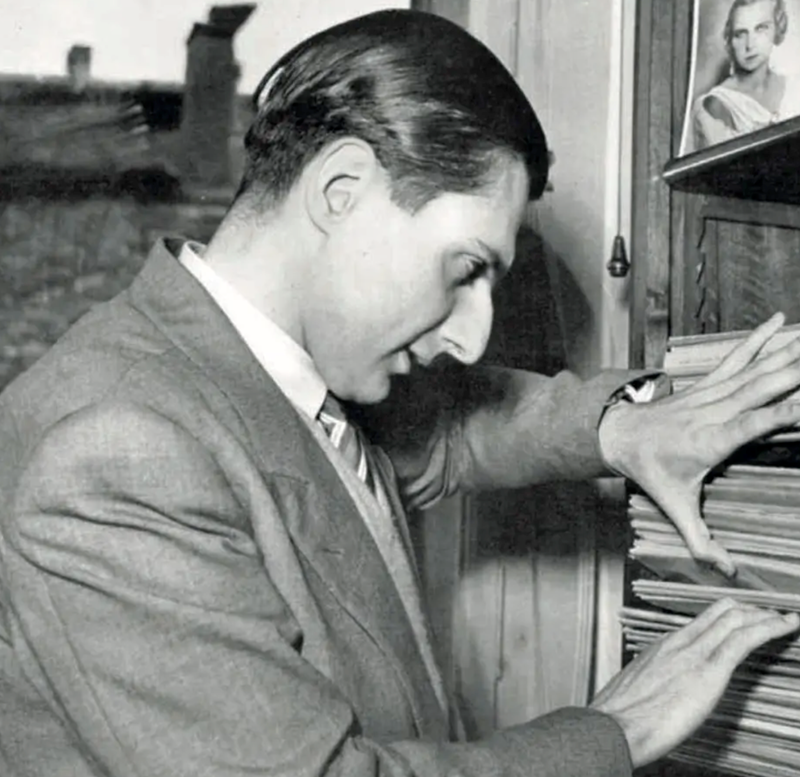Historical Perspectives: Dinu Lipatti
Mark Ainley
Wednesday, November 1, 2023
Mark Ainley celebrates the small but priceless recorded legacy of the great pianist
It was early in my exploration of historical recordings that I first came across the name Dinu Lipatti. In my mid-teens, thumbing through my highschool music department’s record collection, I found a two-LP Angel Records sampler set that included Schubert’s E flat major Impromptu (D899 No 2) that the record sleeve said came from ‘Dinu Lipatti’s Last Recital’. This mysterious and morbid title caught my attention, so I asked the school’s band director if she’d heard of this artist: she looked at me quite seriously and said in a hushed tone, ‘Oh, he was a pianist’s pianist. Everyone loved Lipatti.’
The almost mythical tale of this Romanian pianist, profoundly acclaimed by musical cognoscenti, who died at the age of 33, has been shared in the liner notes of countless LPs and CDs issued since his death in 1950. While much of Lipatti’s life reads like a movie script, my research revealed that some oft-repeated tales were patently false, notably claims that he had a limited repertoire (he’d already publicly performed 23 works for piano and orchestra) and had requested years to prepare the Emperor and Tchaikovsky First Concertos (he played the former twice and agreed to record the latter at a year’s notice).
All of Lipatti’s recordings demonstrate impeccable music-making: textures and voicing so clear that it sounds as if more than one instrument is being played, deftly defined articulation and shaping that give musical phrases a speechlike inflection, a rich array of tonal colours and dynamic gradations, timing that is expressive without being sentimental, and an unwavering rhythmic pulse. His interpretations were nobly conceived and flawlessly executed, made possible by a comprehensive technique that was put solely at the service of the music. The result: performances that are the epitome of refined taste.
The limited scope of Lipatti’s repertoire on record – his official discography amounts to just over three hours’ playing time – and some other circumstances surrounding his recordings are unfortunate. Most known and celebrated are his accounts of Bach, Mozart and Chopin from the final summer of his life: while impeccably crafted and extremely beautiful (his Chopin waltzes continue to be the gold standard), these were set down in a small radio studio with a dry acoustic, so they sound more constricted in scale than the recordings made in his prime. He was a shadow of his former self at his last recital, although the playing is very moving, Schubert’s G flat major Impromptu (D899 No 3) perhaps the crowning glory of the exceptional event; a recent release on the Solstice label is the first to remaster the original broadcast tape and publish it complete with spoken announcements, making the listener feel as if tuned in to the live radio transmission.
 Dinu Lipatti always put his flawless technique at the service of the music (image: Tully Porter Collection)
Dinu Lipatti always put his flawless technique at the service of the music (image: Tully Porter Collection)
Lipatti’s Abbey Road recordings from 1947-48 find him performing with much more power, but the poor sound of most LP and CD transfers can limit the appreciation of his grand and dramatic playing. Thankfully, APR’s recent compilation ‘ The Complete Columbia recordings 1947-1948’ (APR6032) has pristine remasterings that present more vividly than ever Lipatti’s boldly incisive and virtuosic playing. This set has the added bonus of some long-lost test recordings made in 1947 with the cellist Antonio Janigro that took me some 20 years to obtain, including a transcendent first movement of Beethoven’s Cello Sonata No 3 in A major – the only recording found of Lipatti playing this composer and a major addition to his discography.
The Grieg and Schumann Piano Concertos and Chopin’s B minor Piano Sonata are the most substantial works Lipatti recorded at Abbey Road, and all are considered reference readings. Less well known is a 1947 account of Chopin’s Waltz Op 34 No 1, rarely reissued and radically different (and to my ears vastly superior) to the more quaint version from the 1950 cycle: valiant and impulsive yet refined, this earlier traversal makes it painfully clear how much fire this pianist lost due to illness. Lipatti’s greatest recording is surely his stunning take of Ravel’s ‘Alborada del gracioso’, with incredible buoyancy, rapid-fire fingerwork and searing glissandos that indicate that when he was not ill, he was among the most powerful and technically accomplished pianists of all time.
The quest for unofficial solo and concerto recordings by Lipatti reads like a spy story filled with intrigue (I speak from experience). There are somehow far fewer bootlegs of Lipatti than of other major musicians of the time, yet all reveal important facets of his artistry. Least known might be private discs made prior to his EMI contract that showed up in Brooklyn by way of Geneva: those that survived (obtained only when the collector died) include a jaw-dropping Scarlatti Sonata in G minor (Kk450) and heroic accounts of Brahms’s Capriccio Op 116 No 7 and Rhapsody Op 119 No 4 (available on ‘Landmarks of Recorded Pianism, Vol 1’ on Marston Records). If his fabled April 1948 BBC broadcast of Beethoven’s Waldstein Sonata ever materialises – it is believed to have been erased by the corporation – it will surely be a revelation.
Dinu Lipatti had a flawless technique guided by a steadfast devotion not only to each work and composer he performed but to the entire field of music. Every moment of his playing is an experience that Herbert von Karajan described as ‘no longer the sound of the piano, but music in its purest form’.






